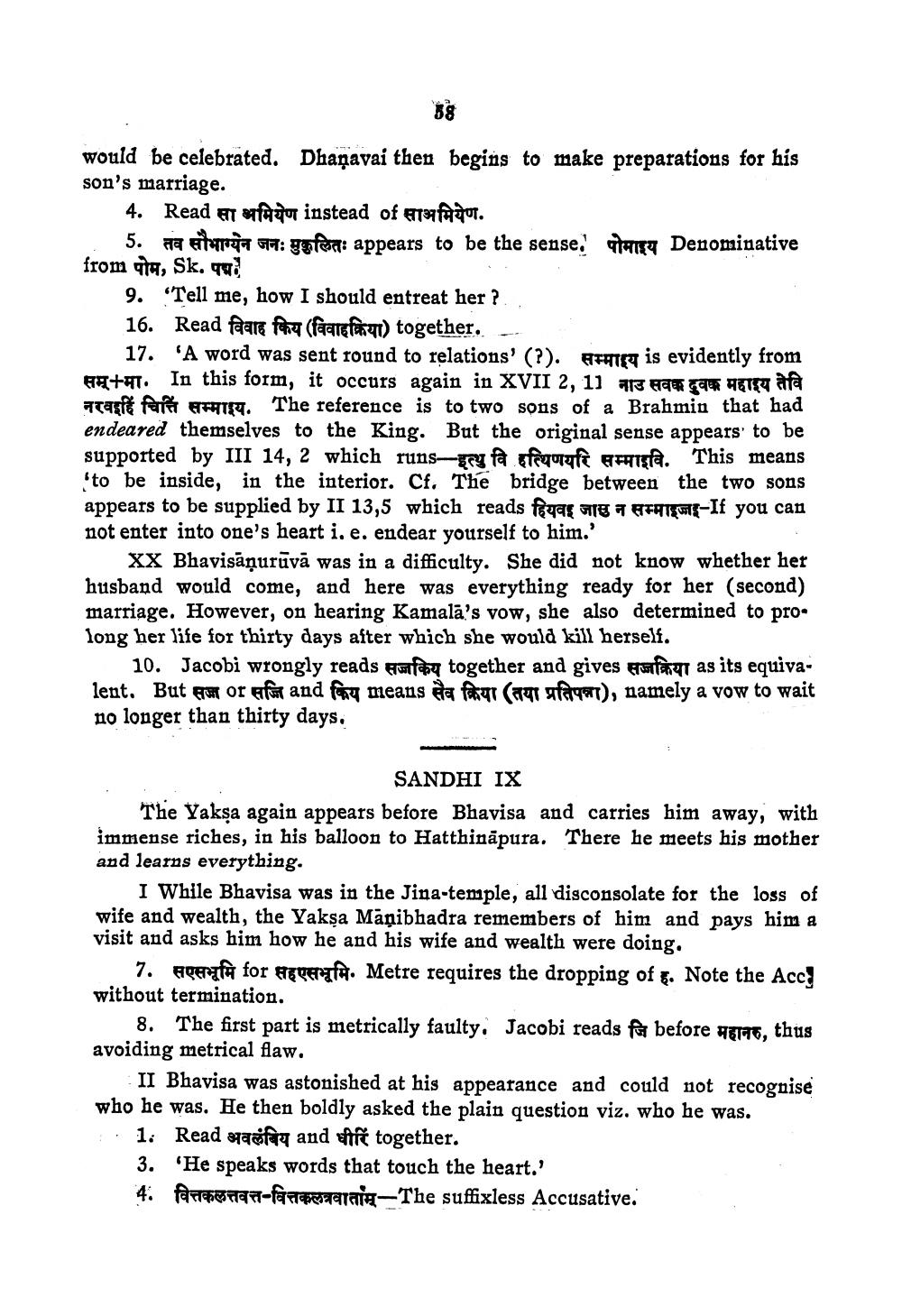________________
would be celebrated. Dhaņavai then begins to make preparations for his son's marriage.
4. Read सा अमियेण instead of सामियेण.
5. Ha atarea 57: gatea: appears to be the sense. HET Denominative from पोम, Sk. प.
9. "Tell me, how I should entreat her ? 16. Read fare former (farateremte) together.
17. 'A word was sent round to relations' (?). FFHTET is evidently from FAT+T. In this form, it occurs again in XVII 2, 11 ars * 46789 ata atasie FM FFATEH. The reference is to two sons of a Brahmin that had endeared themselves to the King. But the original sense appears to be supported by III 14, 2 which runs-gry fagoraft piha. This means 'to be inside, in the interior. Cf. The bridge between the two sons appears to be supplied by II 13,5 which reads fegas og 7 FFH101-If you can not enter into one's heart i. e. endear yourself to him.'
XX Bhavisāņurūvā was in a difficulty. She did not know whether her husband would come, and here was everything ready for her (second) marriage. However, on hearing Kamala's vow, she also determined to pro. long her life for thirty days after which she would kill herself.
10. Jacobi wrongly reads Fulay together and gives far as its equivalent. But सज or सजि and किय means सेव क्रिया (तया प्रतिपन्ना), namelya vow to wait no longer than thirty days,
SANDHI IX The Yaksa again appears before Bhavisa and carries him away, with immense riches, in his balloon to Hatthināpura. There he meets his mother and learns everything.
I While Bhavisa was in the Jina-temple, all disconsolate for the loss of wife and wealth, the Yaksa Māņibhadra remembers of him and pays him a visit and asks him how he and his wife and wealth were doing.
7. सएसभूमि for सहएसभूमि. Metre requires the dropping of ह. Note the Accg without termination.
8. The first part is metrically faulty. Jacobi reads for before 78170, thus avoiding metrical flaw.
II Bhavisa was astonished at his appearance and could not recognise who he was. He then boldly asked the plain question viz. who he was. : . 1. Read eanfaa and titfe together.
3. 'He speaks words that touch the heart." 4. Aprenant-Farerairanan—The suffixless Accusative.




